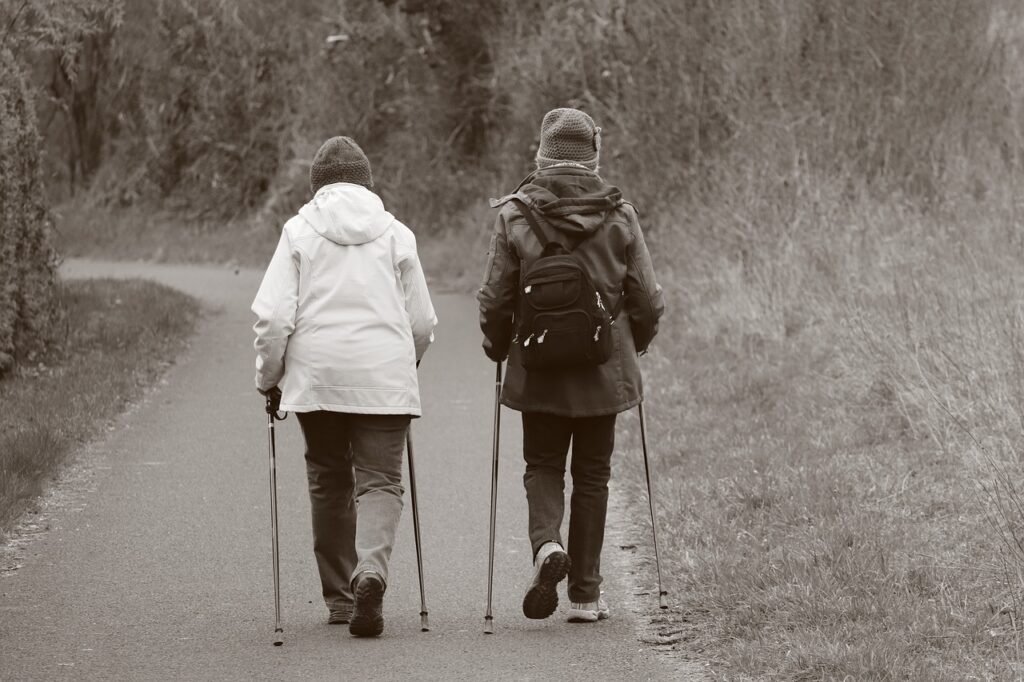The Secrets to a Longer, Healthier Life
Ever wonder what it takes to live a long and vibrant life? The answer lies in the daily habits of people who live over 100. These centenarians often live without major illnesses, stay mentally sharp, and remain active well into their later years. While genetics play a role, research shows that lifestyle and everyday routines are even more influential.
In this post, we’ll break down the top daily habits that consistently show up in the lives of people who reach 100 and beyond. From what they eat to how they move and even how they think – these are practical, science-backed habits you can start applying today. If your goal is to live a longer, healthier life, this guide will show you exactly where to start.
1. They Move Every Day—But Gently
One of the most consistent daily habits among centenarians is regular, low-intensity movement. Unlike high-impact workouts, these individuals often stay active through walking, gardening, stretching, or household chores. It’s not about going to the gym – it’s about simply not being sedentary.
Many people in so-called “Blue Zones” (regions with high concentrations of centenarians) live in environments that encourage movement naturally. For example, they walk to visit friends, tend to gardens, and avoid prolonged sitting.
Remember:
- Gentle but consistent movement
- No reliance on structured workouts
- Activities like gardening, walking, cooking, and cleaning
- Keeps muscles strong and joints mobile
- Supports cardiovascular health and longevity

2. They Eat Mostly Plants
The diets of people who live over 100 tend to be rich in plants and low in processed foods. While some do eat meat, it’s usually in small amounts and consumed only a few times a month. Legumes, whole grains, leafy greens, and fruits dominate their plates.
These plant-forward daily habits support gut health, reduce inflammation, and help maintain a healthy weight. A fiber-rich diet also lowers the risk of chronic diseases like heart disease, diabetes, and certain cancers.
Note:
- 90–95% of food from plant-based sources
- High in fiber, vitamins, and antioxidants
- Low in sugar, salt, and unhealthy fats
- Regular consumption of legumes and fermented foods
- Promotes healthy aging and longevity

3. They Sleep Well and Follow a Rhythm
Sleep is one of the most underrated daily habits for health and longevity. People who live past 100 often report high-quality sleep and maintain a consistent bedtime and wake-up schedule. They avoid artificial lights late at night, limit caffeine, and spend time outdoors, which helps regulate their circadian rhythm.
Good sleep helps repair the body, reduce stress, and support cognitive function. Centenarians don’t necessarily sleep longer than average – but they do sleep better.
Keep In Mind:
- Consistent sleep schedule
- 7–9 hours of restful sleep per night
- Minimal nighttime light exposure
- Natural light exposure during the day
- Improved immune and brain function

4. They Have Strong Social Connections
A key daily habit of long-living individuals is maintaining meaningful relationships. Whether it’s daily chats with friends, regular family meals, or participating in community events, these social interactions offer emotional support and reduce the risk of loneliness and depression.
Studies show that people with strong social ties live longer, experience less stress, and recover faster from illness. These connections provide a sense of belonging and purpose, which plays a critical role in overall well-being.
Key Things:
- Daily or weekly social interactions
- Strong ties with family, friends, and neighbors
- Participation in community or spiritual groups
- Sense of purpose and emotional resilience
- Lower risk of depression and cognitive decline

5. They Manage Stress Mindfully
While no one is immune to stress, centenarians tend to approach it differently. Their daily habits often include relaxation rituals like prayer, meditation, deep breathing, or simply spending quiet time in nature. Many also maintain a positive mindset and avoid overthinking.
Chronic stress is linked to a range of health issues, from heart disease to digestive problems. People who live past 100 have found ways to mentally reset and release daily tension, allowing their bodies to recover from emotional wear and tear.
How:
- Regular stress-reduction techniques
- Positive mindset and emotional control
- Practices like meditation, prayer, or journaling
- Strong sense of self and acceptance
- Reduced cortisol levels and inflammation
6. They Have a Clear Sense of Purpose
Many centenarians wake up with a reason to get out of bed. Whether it’s taking care of grandchildren, volunteering, or tending a garden, having a purpose gives their life structure and meaning. In Okinawa, this is known as “Ikigai” – a reason for being.
Purposeful living is a surprisingly powerful daily habit that impacts physical and mental health. Studies show that people with a strong sense of purpose have lower rates of heart disease, better sleep, and even longer telomeres (the protective caps on our DNA).
Key:
- Sense of meaning beyond oneself
- Daily motivation and goal-setting
- Connection to community or a cause
- Increases happiness and life satisfaction
- Linked to lower mortality risk

7. They Avoid Overeating
Centenarians rarely eat until they’re full. Instead, they practice Hara Hachi Bu – an Okinawan saying that means “eat until you’re 80% full.” This mindful eating habit prevents overeating and reduces the risk of obesity and metabolic issues.
Portion control and slow eating are part of their daily habits, helping them stay in tune with hunger cues. They also avoid eating late at night and prefer to have their largest meal earlier in the day.
Note:
- Mindful, slow eating
- Small portion sizes
- No emotional or binge eating
- Early dinners and light evening snacks
- Lower calorie intake promotes cellular repair
8. They Spend Time Outdoors
Spending time in nature is another vital daily habit of people who live over 100. Whether it’s walking in the garden, farming, or simply sitting in the sun, outdoor time supports vitamin D production, boosts mood, and improves sleep cycles.
Nature also lowers blood pressure, reduces stress, and enhances creativity. Even a short daily walk outdoors has long-term benefits on mental and physical health.
Remember:
- Daily exposure to sunlight
- Walking, gardening, or resting outside
- Connection with natural surroundings
- Reduced risk of depression and anxiety
- Encourages movement and relaxation

Small Daily Habits, Big Longevity Wins
Living past 100 may sound extraordinary, but it’s built on ordinary choices repeated every day. The daily habits of centenarians aren’t complicated-they’re intentional, consistent, and deeply rooted in balance.
To recap, here are the key habits that support a long and vibrant life:
- Move gently and regularly (no need for intense workouts)
- Eat mostly plants and limit processed foods
- Get quality sleep and follow a routine
- Stay socially connected and emotionally engaged
- Manage stress through mindfulness and positivity
- Live with purpose and passion
- Avoid overeating and eat mindfully
- Spend time outdoors every day

By adopting even a few of these habits into your own routine, you’ll be taking meaningful steps toward healthier aging and a more fulfilling life.
Start small. Stay consistent. Your future self will thank you.
What do you think? Can we live as long as these people? Leave a comment below.







